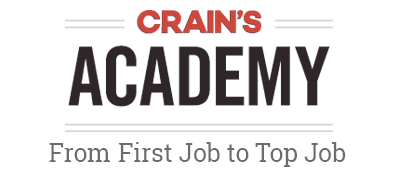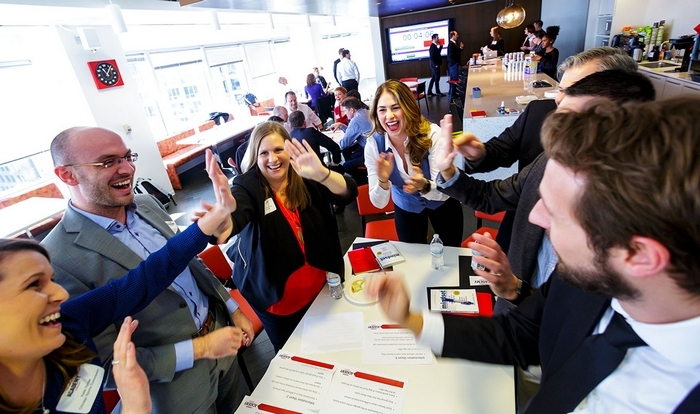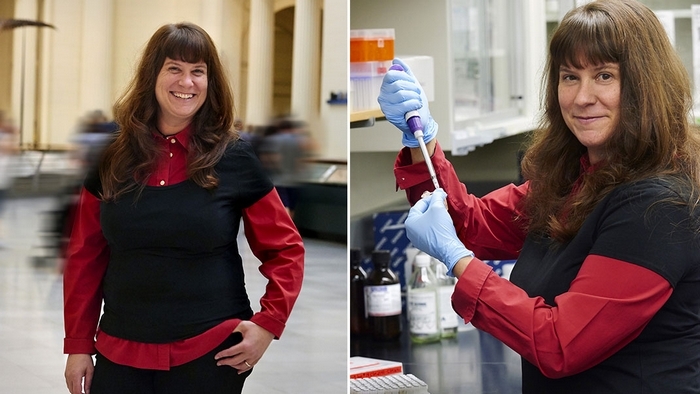What Do People Want in a Team?
Crain's Academy team recently sat down with Jeff Anderson, CEO and President of Lake Forest Graduate School of Management to discuss Crain's Academy newest program (rolling out Spring 2018) Crain's Academy Team Build 2.0. Not only did Jeff do a deep dive into this unique 2-day workshop built specifically for teams to become more high performing and forward thinking. Jeff will also be facilitating this enriching experience come this Spring.
We have all heard the phrase “team work, makes the dream work” Do you agree or disagree with this sentence?
JA: Teamwork is essential for any enterprise to flourish. The common misconception is that this means everyone is always in sync or that everything is perfect because everyone gets along. In fact, good things come from having some organizational tension and we shouldn't be afraid of this. Good teamwork comes when everyone shares a commitment to a mission but are comfortable disagreeing with each other. It's during these disagreements or tension that effective teams find ways to work together to achieve their goals and maintain their respect for each other.
What is the biggest challenge that team leaders face today versus 5 years ago?
JA: Today it is very unlikely that all members of your team are in the same physical location. So how do you build relationships among team members when so much of what you are doing is virtual? We've built many technologies to handle this virtual workforce and they are so easy to use that they can become dangerous to the team dynamics. It is important to force yourself to create personal connections. There are critical conversations that should be done in a more personal way such as via phone or Skype instead of email or messaging.
What do you hope that attendees take away from this new Crain's Academy Team Build 2.0 program?
JA: Our goal is for participants to learn what good teamwork looks and feels like. We want participants to be able to recognize what are the essential ingredients that need to be in place for teams to function in an optimal way. We also want to make sure there is an understanding of what the leader's role is in establishing, nurturing and sustaining the team. Team members should realize that they have the responsibility to make it work too. The team's success depends on everyone.
What has been one of your biggest challenges as the CEO of LFGSM?
JA: My biggest challenge is the same as one that faces CEOs of any organization of any size and that is dealing with the large number of different constituent groups that all need attention. You need to manage communications and understand how they are thinking about things. It is so easy not to spend enough time on this given all the competing demands for your time. I try to spend my time doing things that only I can do and let my team members focus on what they need to accomplish. I just read a great Harvard Business Review article CEOs Spend Their Day Reveals What Makes A leader Successful, the evidence suggests that hands on CEOs are less effective than those that stay high level. Staying high level enables CEOs to focus on things only they can do, otherwise they tend to get in the way of their team members.
Can you give us a preview of one of your favorite modules we will run in our 2 day CA Team Build 2.0?
JA: Relationship Building is such a critical but underemphasized skill. Our parents never took us aside and told us how to make friends and there's little formal training on how we can develop and sustain relationships. However, as you progress in your career it becomes more and more about relationships. We'll spend significant time on this topic so that you and your team can effectively build relationships within your team and with outside constituents. To be able to do this you need to understand yourself and your own style and where it may be causing challenges for yourself and for your team.
We often hear analogies between business and sports. Do you have any insights to share, knowing you are a huge Cub's fan...?
JA: Correct, I am a huge Cub's fan! I'm also fascinated by what they've done to put that team together. Early on Theo Epstein brought in all levels of managers and scouts for a series of meetings. The first day was dedicated to baseball skills—what are we looking for skill wise and what should Chicago baseball look like? The second day was all about character. What is the character of the people we are looking at? Scouts were never asked to do that before. They had to change the way they did things. So critical to the success of the team is the chemistry of the players. The same applies to business. When you are building a team you definitely need certain skills but it's the character of the individuals and how they work together that is critical to the success.
You can find more information on Crain's Academy Team Build 2.0 here.





